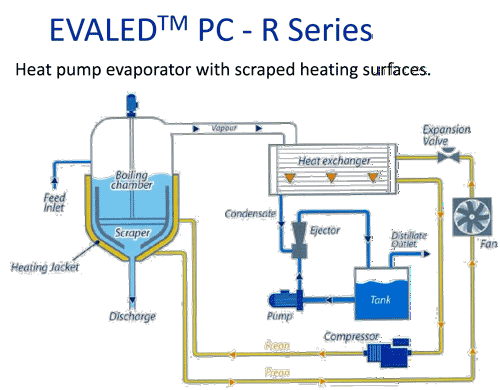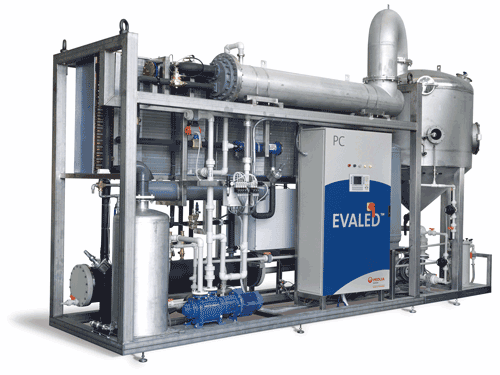Taking Water Reuse to the Next Level
As municipalities around the country are tightening water discharge limits, companies are facing increased operating costs because of the higher costs of water.
As municipalities around the country are tightening water discharge limits, companies are facing increased operating costs because of the higher costs of water. Water is, of course, a critical factor in manufacturing, but its use is adding to the cost of doing business through higher utility charges for processing waste water and for transportation of the waste.
Historically, the use of membrane technology, basically ultra-filtration, has been sufficient to comply with most state and local regulations. However, regulations are increasingly becoming more stringent as is evident with tighter NPDES (National Pollutant Discharge Elimination System) discharge limits.
For many years, Europe has been in the lead for manufacturing’s water recycling and reuse initiatives because of its tighter regulatory programs. These regulations are quickly becoming a part of the landscape of U.S. manufacturing.
In anticipation of these changes, PRAB Inc., an established manufacturer of industrial scrap handling and fluid recycling equipment, announced at the recent PMTS collaboration in water recycling with partner Veolia Water Solutions and Technologies. Veolia Water is an Italian-based global manufacturer of systems designed to address the water recycling needs of industrial manufacturers through a variety of technical solutions.
The future is evident as water becomes increasingly scarce. Methods of conserving, recycling and reusing water in manufacturing are being mandated by more stringent discharge limits and higher disposal costs.
“We are very excited about our partnership with Veolia Water,” says Tim Hanna, managing director of PRAB’s Fluid Filtration Division. “The products and expertise this company brings to the table dovetail perfectly with our wastewater reclamation and fluid recycling equipment. They give us another arrow in the quiver to provide manufacturers with technology that will allow regulatory compliance for water recycling and reuse into the future.”
Evaporation Technology
Evaporation is a natural phenomenon recognized as a clean separation technology in the treatment of waste water. Historically, evaporation and crystallization processes have been an expensive method of treating water because of the low efficiency of direct heating methods used with atmospheric evaporators.
Evaled, the brand name of Veolia’s systems for water treatment in industrial applications, uses a more efficient method of heat generation that lowers the operating costs of the system using a vacuum to lower the boiling point of the water. Also, since it is a closed system, no emissions are discharged in to the atmosphere.
There are several levels of evaporators available from Evaled designed to handle specific needs in the manufacturing process. A core unit of the company uses a heat pump to evaporate particulates from the water. Each unit uses a single inlet and two discharge streams: concentrate and distillate.
The unit is designed to produce a concentrate with high final concentration and a distillate with low conductivity. It’s well applied for use in waste disposal where waste water has high initial content of dissolved or suspended solids or is already pre-concentrated. These units are skid mounted for simple installation and use a PLC control for 24/7 continuous operation.
Another method of using evaporation to recycle and reuse water takes advantage of an existing excess of hot water in the manufacturing facility. This system uses an external shell and tube heat exchanger to evaporate the source water. With its lower boiling point of 104 degrees, within the vacuum chamber, it’s a cost efficient way to recycle waste water.
Where large volumes of water and high temperature are combined, Mechanical Vapor Recompression (MVR) is the technology of choice. Its running cost is low because this requires a minimum of electricity and can deliver a return on investment within months of installation.
Hedging its Bets
With the announcement of its partnership with Veolia Water Solutions and Technologies, PRAB expands its well established offering of recycling and filtration systems for the industrial market. Adding evaporative technology to its established lines of filtration, separation and ultra-filtraion systems is a strategic move to anticipate the direction regulatory agencies are moving and will continue to move.
“We see our role as helping manufacturers deal with the by-products of their manufacturing processes as efficiently, cost effectively and responsibly as possible,” Mr. Hanna says. “As new technical developments in recycling and reuse of the materials and fluids required for making things roll out, we will continue to research and develop these technologies.”
Read Next
Emerging Leaders Nominations Now Open
Here’s your chance to highlight a young person in your manufacturing business who is on the path to be a future leader moving your company forward.
Read More5 Aspects of PMTS I Appreciate
The three-day edition of the 2025 Precision Machining Technology Show kicks off at the start of April. I’ll be there, and here are some reasons why.
Read MoreA Tooling Workshop Worth a Visit
Marubeni Citizen-Cincom’s tooling and accessory workshop offers a chance to learn more about ancillary devices that can boost machining efficiency and capability.
Read More
















.jpg;maxWidth=300;quality=90)




